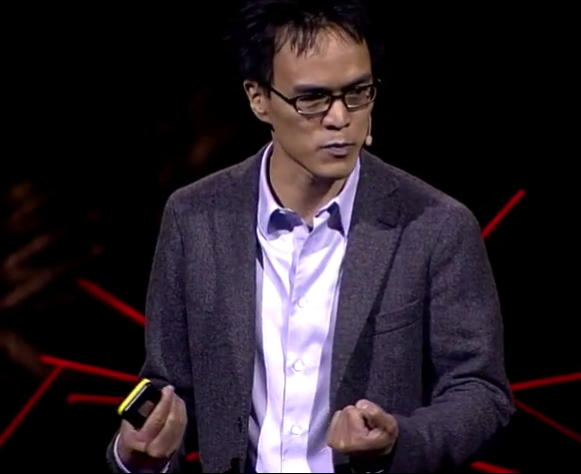Interestingly enough, when you start to crank the data,
有意思的是,當你開始收集數據時,
these pockets of futureless language speakers all around the world turn out to be, by and large, some of the world's best savers.
你就會發現這些說沒有將來時態的語言的國家,很大程度上,恰恰是最喜歡儲蓄的國家。
Just to give you a hint of that, let's look back at that OECD graph that we were talking about.
為了給你們一點提示,請看看剛才提到的OECD儲蓄比例圖。
What you see is that these bars are systematically taller and systematically shifted to the left
你看到相比那些語言中區別將來時態的國家,
compared to these bars which are the members of the OECD that speak futured languages.
沒有區分時態的國家的儲蓄率更高并且總體上更靠左邊。
What is the average difference here?
平均的差值有多大?
Five percentage points of your GDP saved per year.
約占各國每年GDP的5%。

Over 25 years that has huge long-run effects on the wealth of your nation.
這種差別持續了25年,對國家總體財富有著長遠的影響。
Now while these findings are suggestive, countries can be different in so many different ways
現在雖然這些發現能說明問題,但是比較的國家之間在很多很多方面都有差異,
that it's very, very difficult sometimes to account for all of these possible differences.
有時候很難將這些差異歸結為某個原因。
What I'm going to show you, though, is something that I've been engaging in for a year,
我將想你們展示,我過去一年收集到的,
which is trying to gather all of the largest datasets that we have access to as economists,
作為經濟學家能夠得到的所有的大數據集,
and I'm going to try and strip away all of those possible differences, hoping to get this relationship to break.
并且我正在嘗試將國家之間可能的差異性消除,希望可以為(我理論提到的)這段關系提供證據。
And just in summary, no matter how far I push this, I can't get it to break.
總體而言,無論我目前如何嘗試,我都無法將這種關聯消除。
Let me show you how far you can do that.
讓我告訴你們,你們能做到什么程度。
One way to imagine that is I gather large datasets from around the world.
一種可能的驗證方式就是收集了全球范圍的(經濟)數據信息。
So for example, there is the Survey of Health, and Retirement in Europe.
例如,歐洲的健康、老齡化及退休情況統計。
From this dataset you actually learn that retired European families are extremely patient with survey takers.
通過這個數據采集工作你會發現歐洲退休老人對于調查人員是極度有耐心的。











